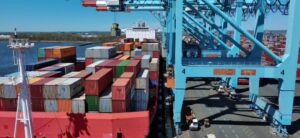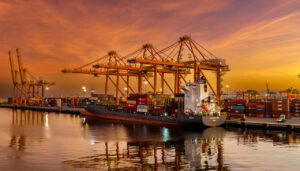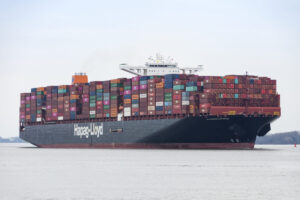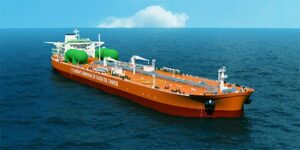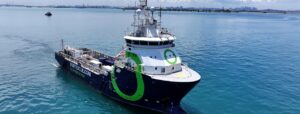The Council of the European Union (EU) has officially approved the conclusive regulations for climate-neutral shipping, as outlined in the FuelEU maritime proposal.
The new regulations, adopted on 25 July, will see an increase in renewable and low-carbon fuels that is anticipated to reduce the carbon footprint of the maritime sector in the EU.
The main objective of the FuelEU maritime initiative is to increase the presence of renewable and low-carbon fuels and reduce the greenhouse gas (GHG) emissions, while ensuring the smooth operation of maritime traffic and avoiding distortions in the internal market.
READ: European shipowners call for funding to convert to net-zero vessels
The new legislation aims to put maritime transport on the trajectory of the EU’s climate targets for 2030 and 2050 and should play a fundamental role in delivering on the European climate law.
The new regulation contains the following main provisions:
- Measures to ensure that the GHG intensity of fuels used by the shipping sector will gradually decrease over time, by 2 per cent in 2025 to as much as 80 per cent by 2050.
- A special incentive regime to support the uptake of the so-called renewable fuels of non biological origin (RFNBO) with a high decarbonisation potential.
- An exclusion of fossil fuels from the regulation’s certification process.
- An obligation for passenger ships and containers to use on-shore power supply for all electricity needs while moored at the quayside in major EU ports as of 2030, with a view to mitigating air pollution in ports, which are often close to densely populated areas.
- A voluntary pooling mechanism, under which ships will be allowed to pool their compliance balance with one or more other ships, with the pool – as a whole – having to meet the GHG intensity limits on average.
- Time limited exceptions for the specific treatment of the outermost regions, small islands, and areas economically highly dependent on their connectivity.
- Revenues generated from the regulation’s implementation (‘FuelEU penalties’) should be used for projects in support of the maritime sector’s decarbonisation with an enhanced transparency mechanism.
- Monitoring of the regulation’s implementation through the Commission’s reporting and review process.
The new regulation will be published in the EU’s official journal after the summer and will enter into force the 20th day after this publication.
The new rules will apply from 1 January 2025, apart from articles 8 and 9 which will apply from 31 August 2024.
Today we welcome final adoption by @EUCouncil of:
— EU Transport (@Transport_EU) July 25, 2023
✅#AFIR ensuring deployment of alternative fuels infrastructure https://t.co/RuQeitp33S
✅#FuelEU Maritime promoting sustainable fuels in shipping https://t.co/bXk9ghr5oV
On track to cut 90% GHG emissions by 2050!#EUGreenDeal pic.twitter.com/dM3bQEzT5V
“The new law will also provide legal certainty for ship operators and fuel producers and help kick-start the large-scale production of sustainable maritime fuels, thus substantially delivering on our climate targets at European and global level,” commented Raquel Sánchez Jiménez, Spanish Minister of Transport, Mobility and Urban Agenda.
READ: ESPO encourages cooperation in the deployment of onshore power supply
The FuelEU maritime initiative is part of the fit for 55 package.
Presented by the European Commission on 14 July 2021, the package aims to enable the EU to reduce its net GHG emissions by at least 55 per cent by 2030 compared to 1990 levels and to achieve climate neutrality in 2050.
On 2 June 2022, the Transport Council reached a general approach on the proposal and, following negotiations with the European Parliament, the two co-legislators reached a provisional agreement on the regulation for the package on 23 March 2023.
Notable decarbonisation efforts of late include RightShip’s, a ESG-focused digital maritime platform, announcement of a collaboration with the Port of London Authority (PLA) to facilitate the Thames’s transformation to Net Zero.



